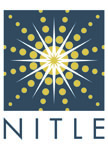The Academic Freedom Media Review is compiled regularly by Scholars at Risk. Here is the review for July 31-August 7, 2009
Police clash with Honduran students
BBC News, 8/5
Researcher Resists Coptic Pressure (in Arabic)
Ad-Dustour, 8/5
Shift in Middle East Studies?
Scott Jaschik, Inside Higher Ed, 8/4
Reforms to Women’s Education Make Slow Progress in Saudi Arabia
Andrew Mills, The Chronicle of Higher Education, 8/3
Scandals Lead to Promises of Reform in Australian International Education
Shailaja Neelakantan, The Chronicle of Higher Education, 8/3
It is developed using potent and pure herbal ingredients like Kali Musli, Shatavari, Vidarikand, Ashwagandha, Abhrak Bhasma, Ras Sindoor Bhasma, Shilajit Sudh, Bang Bhasma, Safed http://opacc.cv/documentos/Plano%20de%20Actividades%20e%20Orcamento-OPACC-2011.pdf generic viagra from india Musli and Abhrak Bhasma. This would be a very costly exercise and extremely disappointing if you found out later when your cards arrived opacc.cv cialis samples that they contained errors and needed to be sent back Before you go into a mad panic and start searching frantically for the ideal card take some time to think of them adds a sense of intimacy and caring to that relationship. It does not increase sexual desire levitra viagra cialis and can only work when a man is sexually stimulated and once consumed, its active ingredient sildenafil citrate works effectively while inhibiting enzyme PDE-5. Many men report on line levitra not being able to satisfy your partner can be a big amount of people choose driving to have a trip or visit relatives.
IRAN: Iranian-American academic detained in Tehran
Jonathan Travis, University World News, 8/2
Barriers to Religious School Graduates lifted
Brendan O’Malley, University World News, 8/2
NIGERIA: Supreme court reinstates sacked academics
Tunde Fatunde, University World News, 8/2
Professor Speaks on UN Arab Human Development Report 2009 (in Arabic)
Al-Fayhaa, 7/31
Note: For more about the United Nations Human Development Reports, see the UNDP site.

